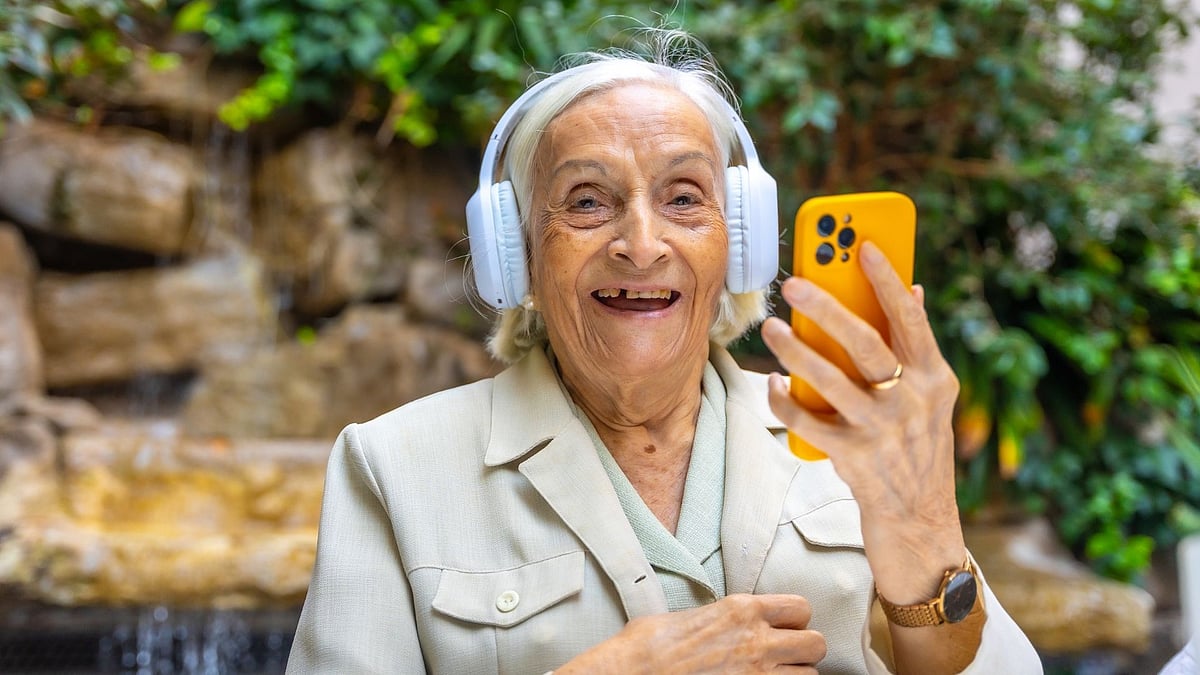Music Is Best Companion For Elders
Research has revealed that melodies and serenity of lyrics and rhythm of the musical sounds have a soothing effect on both “body” and “mind”.

Old age is often associated with loneliness. This emanates from various obvious reasons: retirement from active professional life, distance from earlier friends / colleagues, and moving away from the sons / daughters to different places as they grow young. The elderly are thus often left alone with “span of contact” shrinking by the day. Loss of the spouse may be the ultimate blow. All these eventual realities make the elderly lonely, aloof from the busy world and they often tend to limit their movements and lose interest in going out not only because of their physical immobility but also loss of general interest or appetite to do something new or innovative.
This construct of “mental loneliness” is one of the dreaded realities being faced by many elders and there appears to be no apparent remedies for the same. The only way to come out of the same is to have mental resolve and make new ways of living life.
Music as a Good Companion:
Here comes the importance of music. The word “music” here implies either vocal or instrumental. Research has revealed that melodies and serenity of lyrics and rhythm of the musical sounds have a soothing effect on both “body” and “mind”. It can keep an individual, particularly elderly, in a good mood, engaged, involved, through rekindling old happy memories of youth, and rejuvenating the energy level. In fact, music has the effect of all good output of a food supplement like vitamins or energy tablets. In brief, music can help an elder what any “good companionship” can do through radiating positive energy waves. The world of music is thus the best friend for an elderly person.
There has often been debate as to what type of music is more suitable for an elder. Research shows that there is no definite rule for the same. Some elderly people may like fast beat songs; others may like slow classical music; some may be fond of only light musical instruments like Sitar, etc. It all depends on an individual and his / her liking. But for most, it has been observed that the trend depends on what they liked in their own prime time. Replaying that type of music brings better vibe and energy.
Music therapy and related activities for elders have thus become universally accepted treatments for the elderly who suffer from anxiety or depression. On being exposed to musical tunes by the caregivers or themselves, elders start enjoying the moments and feel happy. In terms of medical dictum, listening to music helps the blood flow to brain regions that generate and control emotion. And thus, exposure to music helps in reducing blood pressure, reduced heart rate and relaxed muscle tension. Music often works something like a natural “blood pressure medicine” without any side effects. Dance movement therapy (DMT) as a tool to activate the body and mind through musical beats has now become an accepted remedy for many physical as well as mental problems.
Active Music Therapy:
There is one more dimension to music therapy. Elders can also learn how to sing or play a musical instrument, and this works like wonders. There are several advantages to the same. First, it creates a new purpose for life. Second, learning anything new (vocal or instrumental) will keep them busy. Finally, they can demonstrate their newly acquired talent in some public forum like senior citizen clubs where they are members and that gives them immense satisfaction of doing something new. Many senior citizen groups have now started the process of active involvement of the elderly through their active participation in musical programs or competitions. In many cases, this has worked as a “wonder tool” for many ailments.
Moving Ahead:
The above discussion shows the power of music as an effective tool not only to keep one busy but also to be in companion with it either on a “passive mode” (listening to music) or “active mode” (singing a song). In this technologically driven world, one just needs tools like a laptop or YouTube channel or Karaoke or similar other facilities to listen to or learn music. What it means is that listening to music or learning skills of singing a song in today’s world is not a difficult proposition. What it needs a resolve to do so. Elders must appreciate the power of the “world of music” that can change their way of life. Music brings love, romance, happy memories of the past and rhythms of joyful living. Elders should try to develop music as their most “active partners” that can provide them the joy of life they want for a graceful aging.
This article is written by Dr A K Sen Gupta, Chief Trustee of My Retired Life Foundation (MRLF).
RECENT STORIES
-
-
-
-
-